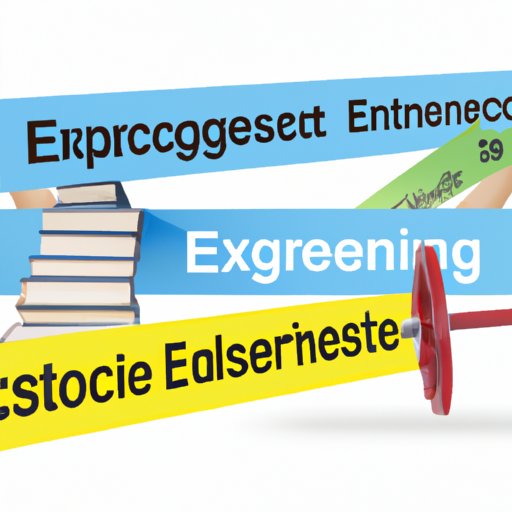Introduction
Exercise science is an exciting and growing field that combines the disciplines of physical activity, nutrition, and health promotion to optimize human performance. An exercise science degree focuses on the scientific principles underlying physical activity and how they can be applied to improve health and wellness. It is a multidisciplinary program that integrates the knowledge of biology, chemistry, physics, psychology, and biomechanics.

Overview of an Exercise Science Degree
An exercise science degree provides students with the skills and knowledge needed to understand the effects of physical activity on the body. This degree prepares graduates for careers in the health and fitness industry, as well as research and educational environments. The curriculum typically includes courses in anatomy, physiology, kinesiology, nutrition, and exercise science. Additionally, some programs may offer courses in leadership, business, and communication.

Benefits of Pursuing an Exercise Science Degree
Pursuing an exercise science degree can provide you with a variety of professional and personal benefits. According to a recent study published in the Journal of Physical Activity and Health, people who have completed a degree in exercise science are more likely to engage in regular physical activity, make healthier food choices, and have higher levels of self-efficacy.
In addition to these personal benefits, an exercise science degree can also open up a variety of career opportunities. From working in the health and fitness industry to pursuing research or educational positions, there are many paths to choose from when it comes to exercise science.
Exploring the Opportunities with an Exercise Science Degree
Requirements for an Exercise Science Degree
The requirements for an exercise science degree vary depending on the school and program. Generally, most programs require students to complete a minimum of 120 credit hours, which include general education courses, major-specific courses, and electives. Most programs also require students to complete an internship or practicum experience.
Courses Offered in an Exercise Science Program
The courses offered in an exercise science program will depend on the specific program, but common courses may include: anatomy and physiology, biomechanics, nutrition, exercise physiology, kinesiology, motor learning and control, psychology of sport and exercise, and sports medicine. Other courses may include electives such as yoga, dance, martial arts, and strength and conditioning.
Career Paths for Exercise Science Majors
Exercise science majors have a variety of career paths to choose from. Graduates can pursue opportunities in the health and fitness industry, education and research, and healthcare.
Health and Fitness Industry
Graduates of an exercise science program can pursue a variety of positions in the health and fitness industry. These include roles such as personal trainer, group fitness instructor, strength and conditioning coach, and health club manager. With the right certifications, graduates can also work as a nutritionist or dietitian.
Education and Research
Exercise science majors can also pursue careers in research and education. They can work as researchers in academic and medical settings, or as faculty members at universities and colleges. Additionally, they can pursue administrative positions in the health and fitness industry or in healthcare organizations.
Healthcare
Exercise science majors can also work in healthcare settings. Graduates can pursue roles such as physical therapist, occupational therapist, and athletic trainer. Additionally, they can pursue roles in health promotion and disease prevention, such as health educator or community health worker.
The Impact of Exercise Science on Health and Wellness
Exercise science has had a significant impact on health and wellness. According to a study published in the American Journal of Preventive Medicine, regular physical activity has been linked to improved physical and mental health, as well as increased quality of life.
Regular physical activity can help reduce the risk of chronic diseases, such as heart disease, diabetes, and obesity. Additionally, it can help improve mood, reduce stress and anxiety, and increase energy levels. Regular physical activity can also help improve sleep quality, cognitive function, and overall wellbeing.

Tips for Maximizing Your Exercise Science Degree
Once you have earned your exercise science degree, there are a few steps you can take to maximize the value of your degree. Here are some tips for making the most of your degree:
Developing Professional Networks
Developing professional networks is an important part of advancing your career. Joining professional associations and attending conferences and seminars can help you build connections and make contacts in the industry. Additionally, networking online through social media platforms such as LinkedIn and Twitter can also be beneficial.
Gaining Relevant Experience
Gaining relevant experience is another key way to maximize your exercise science degree. Internships, volunteer opportunities, and part-time jobs can all provide valuable experience in the field. Additionally, completing a specialization or taking additional courses can also help you stand out when applying for jobs.
Utilizing Resources
Finally, utilizing resources is essential for maximizing your exercise science degree. There are many resources available to exercise science majors, such as professional development workshops, job boards, and career counseling services. Utilizing these resources can help you stay up to date on industry trends and find employment opportunities.
Conclusion
An exercise science degree provides students with the skills and knowledge needed to understand the effects of physical activity on the body. It can lead to a variety of career paths, from the health and fitness industry to research and education. Additionally, it can also have a positive impact on physical and mental health, as well as overall quality of life. To maximize the value of your degree, it is important to develop professional networks, gain relevant experience, and utilize resources.
(Note: Is this article not meeting your expectations? Do you have knowledge or insights to share? Unlock new opportunities and expand your reach by joining our authors team. Click Registration to join us and share your expertise with our readers.)
